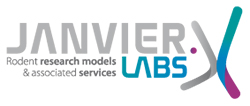Temporary negative results of serological monitoring of rats with enzootic Haemophilus infection
DOI:
https://doi.org/10.23675/sjlas.v41i0.332Abstract
Infection by V-factor requiring Pasteurellaceae (Haemophilus spp) bacteria frequently occurs in Specified Pathogen Free (SPF) colonies of rats. Colonies may be monitored by methods that either detect the bacteria or detect specific antibodies by for instance the enzyme-linked immunosorbent assay (ELISA) and immunoblot (IB).
Breeding females in enzootically infected colonies transfer antibodies to their young. Maternal immunity prevents the development of antibodies by the pups yielding a transition period of low antibody activity in the pups between waning maternal immunity and seroconversion.
We studied antibody activity to Haemophilus antigens in young rats delivered by Haemophilus infected dams by ELISA and IB using antigens of Haemophilus strains H21 (from rat) and H35 (from guinea pig).
Young showed high ELISA and IB maternal antibody activity until weaning, a decline to a low level between 9 and 12 weeks of age, and then seroconversion.
As a consequence seroprevalence varied with age and during the transition period H21 ELISA yielded a false negative result in Haemophilus infected rats.
The age-related variation in antibody activity in enzootically infected rodents has an impact on the development of sampling strategies for serological health monitoring and interpretation of its results.







